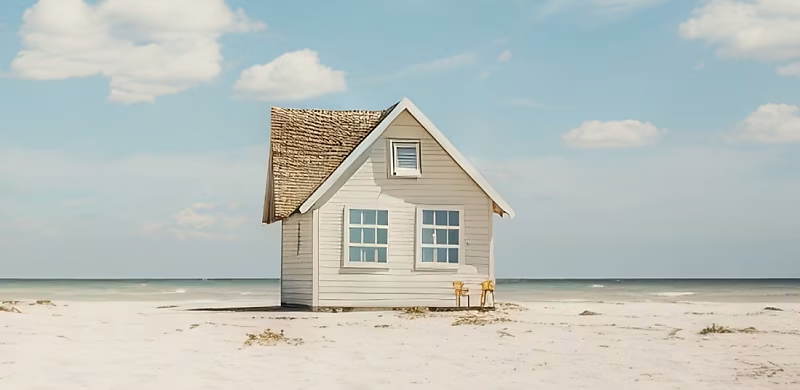CoreLogic’s quarterly Pain & Gain report shows 99% of New Zealand properties are being resold for a gross profit, the highest number on record, says Chief Property Economist Kelvin Davidson

New Zealand home owners are pocketing a record level of gross profits from property resales as the country’s real estate market defies last year’s weak economic outlook.
The report shows the proportion of New Zealand properties being resold for a gross profit was 99.0% in the three months to June 2021. This is the highest on record, up from the previous high of 98.9% recorded in the first quarter of the year.
The extraordinary gains are a stark contrast to the housing market crash predictions made in mid-2020 at the height of COVID-19’s first wave.
In the 25-year history of the data series, there’s never been as many resellers, in proportional terms, making gross profits from real estate sales.
The strength and resilience of the market reflects the support measures for the wider economy that were put in place by the New Zealand Government alongside very low mortgage rates, which have pushed property values sharply higher.
The June quarter results are on top of previous gains, which means anyone who’s held their property for the traditional seven to 10-year period will inevitably sell for substantially more than they paid.
Nationally the median resale gain in the three months to June 30, 2021 was $347,500 – a new record high. In contrast the median resale loss was just $20,000 for the same period.
These ‘profits’ would have been accumulated over many years and not just during the post-COVID phase. Though it is worth noting the majority of owner-occupiers would typically need to recycle the equity to afford their next purchase, which is likely to have also increased sharply in value.
The current level of ‘pain’ in the market is more like being tickled with a feather than a serious cut.
This may remain the case for a few quarters yet. Anybody who’s owned a property for a series of years should still make a significant profit, even if the low-probability scenario of falling house prices came to fruition.
The headwinds for the property market have been building in 2021 and include the introduction of 40% deposits for investors, the phased removal of interest deductibility, a lower speed limit for high loan-to-value ratio (LVR) owner-occupier lending and higher mortgage rates.
With unemployment still low and mortgage rates set to remain well below past norms, an outright downturn seems unlikely, assuming homeowners, especially recent entrants to the market, are aware of the rising interest rate outlook and are making adjustments accordingly.
Median Hold Period
Across New Zealand properties resold for a gross profit in the three months to June 2021 had been owned for a median of 7.4 years.
While the ownership period remained unchanged from the previous two quarters, hold periods for resale gains have reduced since the peak median hold period of 8.5 years was recorded in Q4 2015.
For loss-making resales in the three months to June, the median hold period was 3.9 years, up from 3.5 years in Q1 2021. The hold period for resale losses has been generally rising for a few years, reaching a low of 2.6 years in Q4 2018.
Property Types
It’s become very uncommon in recent years for houses to make a gross loss at resale, with 0.8% resold for less than the original purchase price in the three months to June. For context, in mid-2001 only 70 to 75% of house resales made a gross profit, and in early 2011 the figure was 80 to 85%.
The share of apartments resold for a gross profit in Q2 2021 was 92.9% compared to the same period in 2000 when only about 54% of apartment resales achieved a gross profit.
Main Centres
In terms of the size of resale gains and losses in New Zealand’s main centres, Wellington was the strongest performer, recording a new record high in Q2 and a median resale profit of $535,000.
The median gain in Auckland was $490,000 and $437,500 in Tauranga. In Hamilton and Dunedin the median resale gain was $360,000 or more, while Christchurch median resale gain was $220,000.
Resale losses were less common in all main centres and far smaller than historical averages. Wellington for example had a median resale loss of just $9,000.
Pain & Gain Outlook
The outlook for strong resale values remains robust when compared to previous prolonged periods where gains were recorded. Resales stayed very high at a rate of 97% or more between 2004 and 2007, and a repeat performance can’t be ruled out this time either.
However these strong ‘profits’ for resellers predated some of the new macro prudential measures introduced and the August lockdowns. While the economy and property market have proved capable of bouncing back quickly when restrictions lift, there’s uncertainty around the potential knock-on effect an extended lockdown could have.
Regulatory pressures have been quickly increased in the past six months, including the looming tightening of the speed limit for owner occupier lending, which we suspect will hit first home buyers quite hard.
On top of that, mortgage interest rates have already risen and there is plenty more scope for further increases over the next 12-18 months. That could be problematic for stretched recent buyers, or even existing owners who have traded up with potentially larger mortgages than before.
Overall it wouldn’t be a surprise to see the Pain & Gain figures soften a little over the coming quarters, but stay relatively strong going on past standards.
Key findings for Pain & Gain, June Quarter 2021
- Nationally the proportion of properties being resold for more than the original purchase price (i.e. a gross profit or “gain”) in Q2 2021 was 99.0% – an equal record high with Q1 2021.
- The size of the median resale gain recorded for the period was $347,500.
- New Zealand property values have increased 24.8% nationally for the year to July 2021.
- For those who have owned a property for seven to 10 years a resale profit is almost inevitable.
- Strong resale gains have been replicated across each of the main centres and provincial markets as well as houses and apartments and by owner occupiers and investors.
- The main drivers for the record resale gross profits are tight listings and low mortgage rates.










